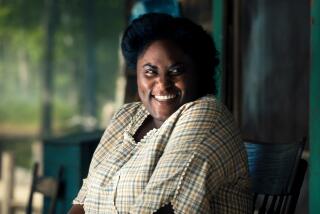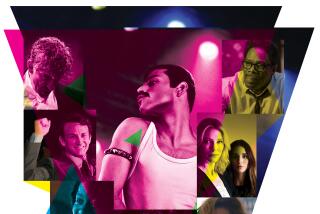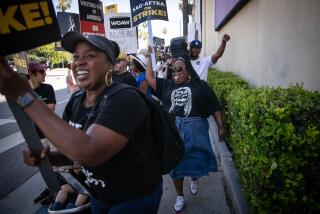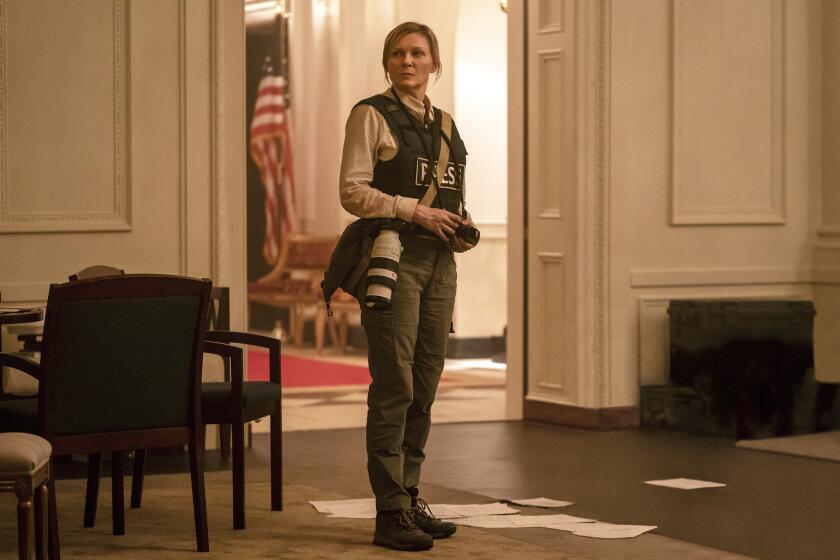Indie Focus: Joy, struggle and recognition with ‘Black Panther,’ ‘The Party’ and ‘Golden Exits’
Hello! I’m Mark Olsen. Welcome to another edition of your regular field guide to a world of Only Good Movies.
Now that nearly all the precursor awards have been given out, this year’s Oscar race remains in an unusual holding pattern. In what has been an unpredictable season, these final weeks could be full of surprises. We’ll see.
And we should have some more screening events and Q&As to announce soon. For updates on future events, go to events.latimes.com.
‘Black Panther’
Arriving with incredible momentum both in its cultural and box office impact, “Black Panther” is more than just another Marvel movie. Following the Sundance success of his debut “Fruitvale Station” and then the box office success of “Creed,” filmmaker Ryan Coogler now has transformed the comic book superhero movie into something full of thematic depth, emotional weight and cultural detail.
While part of the larger universe of “The Avengers” series, this is the story of T’Challa, king of the fictional African nation of Wakanda, with a standout cast that includes Chadwick Boseman, Michael B. Jordan, Lupita Nyong’o, Danai Gurira, Laetitia Wright, Winston Duke, Daniel Kaluuya, Sterling K. Brown and Angela Bassett
In his review for The Times, Kenneth Turan wrote, “A superhero movie whose characters have integrity and dramatic heft, filled with engaging exploits and credible crises all grounded in a vibrant but convincing reality, laced with socially conscious commentary as well as wicked laughs that don’t depend on snark, this is the model of what an involving popular entertainment should be. And even something more.”
The Times’ Tre’vell Anderson spoke to Coogler, as well as his longtime collaborators cinematographer Rachel Morrison and production designer Hannah Beachler, to discuss how making even a big-budget comic book franchise film is a deeply personal project.
“A big thing for me is the question of ‘What does it mean to be African?’” Coogler said, “As a result of this thing that you are and have no control over, you’re gonna have to deal with certain situations in a certain way — and sometimes those situations can cost you your life. When I found myself asking that question, I hadn’t even been to the place.”
Jen Yamato spoke to Boseman both about the role and its bigger meaning within the landscape of contemporary culture.
“The projects that I end up doing, that I want to be involved with in any way, have always been projects that will be impactful, for the most part, to my people — to black people,” Boseman said. “To see black people in ways which you have not seen them before. So ‘Black Panther’ was on my radar, and in my dreams.”
Yamato also looked at the film’s depiction of women, creating a world in which they are warriors, spies, scientists, queens and in every way equals.
Sonaiya Kelley spoke to actress Letitia Wright about her breakout role as T’Challa’s younger sister Shuri.
Ryan Faughnder and Daniel Miller looked at what the film’s box office potential means, noting, “Crucially, ‘Black Panther’ could help shake up the way Hollywood does business by defying assumptions about films with predominantly black casts and filmmakers.”
The film has also inspired some deeply felt cultural reflection. At the Ringer, K. Austin Collins wrote, “I admittedly have less at stake in whether ‘Black Panther’ is a good superhero movie. I just wanted it to be a good movie. And I wanted us to be a good audience: thoughtful, fair, fervent, excited. I think we’re all winning, on all fronts. The most radical thing a ‘Black Panther’ movie could have done is ask what Wakanda means — and what it owes — to the race. And that’s what Coogler’s passionate, funny, dexterous movie asks, over and over again, both to its characters and to its audience.”
For the New York Times Magazine, Carvell Wallace explored the movie’s importance to the moment in black culture, writing, “‘Black Panther’ is a Hollywood movie, and Wakanda is a fictional nation. But coming when they do, from a director like Coogler, they must also function as a place for multiple generations of black Americans to store some of our most deeply held aspirations.”
For Time, Jamil Smith wrote, “If you are reading this and you are white, seeing people who look like you in mass media probably isn’t something you think about often .… Those of us who are not white have considerably more trouble not only finding representation of ourselves in mass media and other arenas of public life, but also finding representation that indicates that our humanity is multifaceted. Relating to characters onscreen is necessary not merely for us to feel seen and understood, but also for others who need to see and understand us. When it doesn’t happen, we are all the poorer for it.”
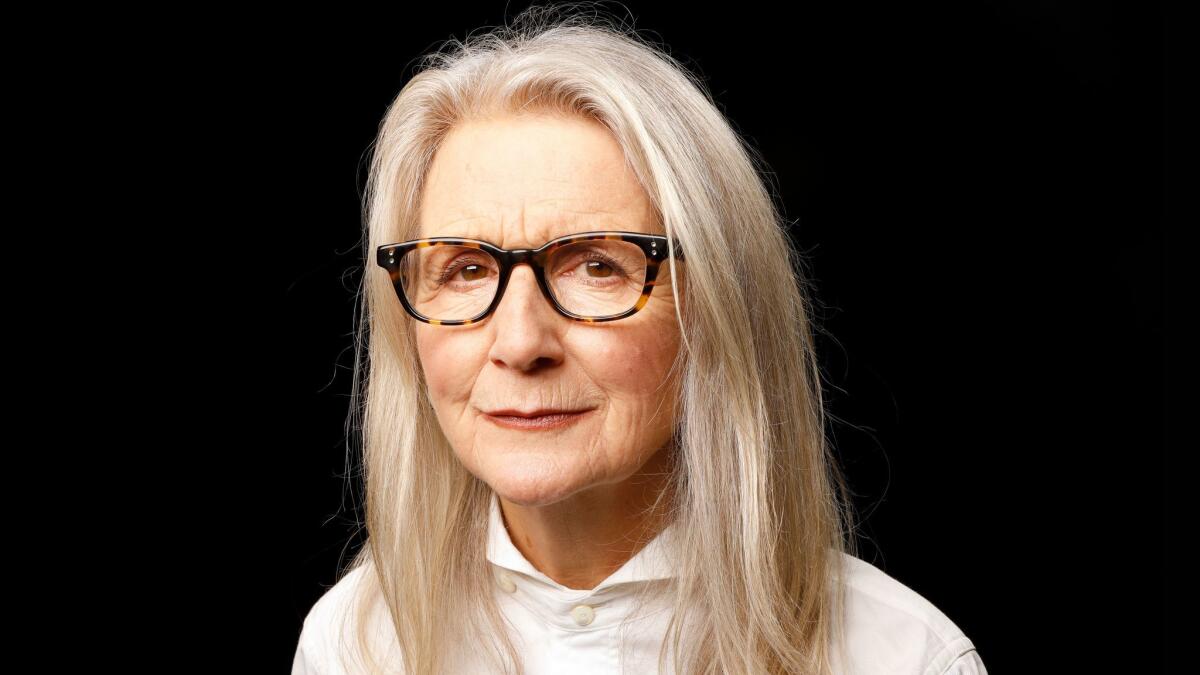
‘The Party’
From her landmark “Orlando” to more recent “Ginger & Rosa” to new “The Party,” filmmaker Sally Potter has created a body of work that is always surprising, delivering unexpected challenges to viewers that are richly rewarding. “The Party” is about just that, a disastrous dinner party with a cast that includes Timothy Spall, Kristin Scott Thomas, Patricia Clarkson, Emily Mortimer and Cillian Murphy.
In his review for The Times, Justin Chang noted, “‘The Party’ shows just how quickly a small microcosm of enlightened liberal society can descend into coke-snorting, face-smacking, gun-toting chaos. It also demonstrates what can happen when a filmmaker takes on a well-worn cinematic subgenre — the dinner party gone horribly wrong — and strips it down to its blistering bare-bones essence.”
For The Times, Emily Zemler spoke to Potter. Of her long and varied career, Potter said. “”What an independent film can do is engage the viewer in a more collaborative way and a more active way and perhaps a more respectful way and certainly in a more intimate way. But then I’ve never been offered to direct a James Bond or a Star Wars. It would be an interesting challenge, wouldn’t it? Instead I’ve had to create my own world.”
‘Golden Exits’
Writer-director Alex Ross Perry has become one of the most sensitive and nuanced chroniclers of a certain kind of creative-class lifestyle and accompanying anxieties. His new “Golden Exits” captures a group of urbanities — played by Emily Browning, Adam Horovitz, Mary-Louise Parker, Chloe Sevigny, Lily Rabe, Analeigh Tipton and Jason Schwartzman — all trying to find stability while also battling off stasis. The movie is at once mercilessly acerbic and empathetically insightful, ringing with painful recognition.
In his review for The Times, Chang said Perry “seems intent on liberating American independent cinema from the tyranny of ‘likable characters,’ one movie at a time. The men and women moving through his brittle, blistering dark comedies stake little claim on our affection, which may partly explain why they so easily command our attention.”
In a review for New York magazine’s Vulture.com, Emily Yoshida added, “There’s a kind of late afternoon enchantment that wafts over the film and keeps the characters fixated on some other life they could be living .… But all the heart-to-hearts about partnership and cohabitation that paper the film are not snappy gabfests; they’re more in search of something.”
Perry spoke to Sean Fennessey at the Ringer for the Big Picture podcast.
Email me if you have questions, comments or suggestions, and follow me on Twitter @IndieFocus
More to Read
Only good movies
Get the Indie Focus newsletter, Mark Olsen's weekly guide to the world of cinema.
You may occasionally receive promotional content from the Los Angeles Times.
